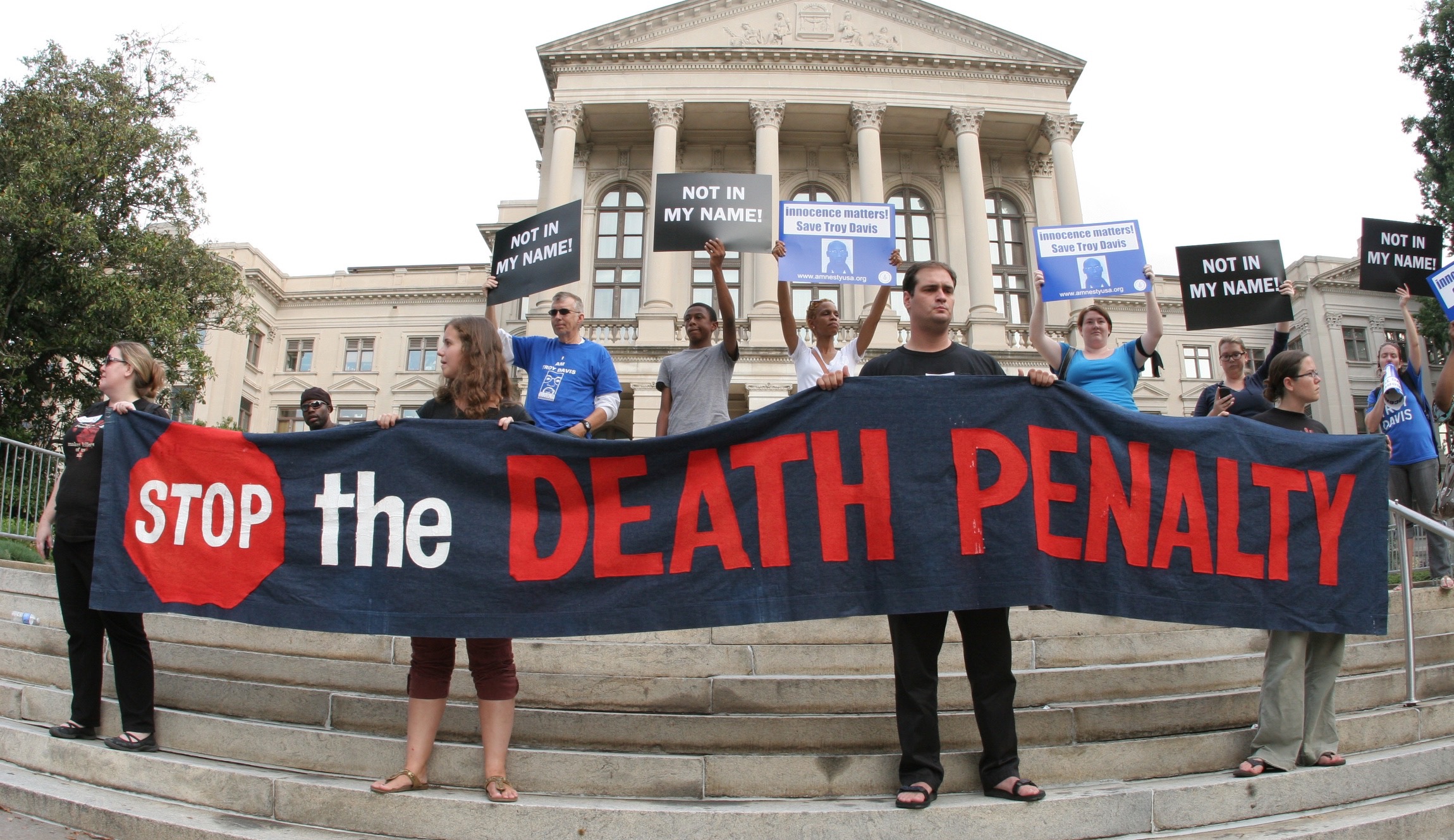LINCOLN, Neb. (CNS) — The Nebraska Legislature May 20 passed a measure to repeal the death penalty with enough votes to override Republican Gov. Pete Ricketts’ promised veto.
Members of the unicameral body gave final approval to the bill with a 32-15 vote.
At a news conference a week earlier, Archbishop George J. Lucas of Omaha joined about 15 religious leaders, priests and women religious in calling for an end to the death penalty in the state.
Noting that all life is sacred, Archbishop Lucas said he was pleased and privileged “to join friends from other faith communities at this important moment.”
The archbishop also noted he was representing the Nebraska Catholic Conference, the public policy arm of the state’s three Catholic bishops.
There are currently 11 prisoners on death row in Nebraska.
According to a posting on the Catholic conference’s website, a total of 37 people have been executed in Nebraska since it became a state in 1867. Thirty-four took place before 1972, the year the U.S. Supreme Court put a moratorium on use of the death penalty.
After the high court restored the death penalty in 1976, the state executed three men: Harold Otey in 1994, John Joubert in 1996 and Robert Williams in 1997.
Nebraska lawmakers voted in 1979 to prohibit capital punishment, but then-Gov. Charlie Thone vetoed the measure and the Legislature did not have enough votes to override it.
News reports have made much of the fact that the Republican lawmakers were among those pushing to repeal the death penalty. Ricketts had five days to sign or veto the bill before it becomes law automatically. If it becomes law, L.B 268, will apply retroactively, giving those currently on death row a sentence of life without parole.
Catholic teaching recognizes the state has recourse to the death penalty if it is the only available means to protect society from a grave threat to human life, Archbishop Lucas said in the news conference, held May 13 at the Omaha Press Club. But because of improvements in the penal system, such cases are rare, if not practically nonexistent, he said.
The death penalty does not provide rehabilitation and there is no clear evidence that executions deter crime, the archbishop said. At the same time, some criminals will never be fit for reintegration into society and just sentences are needed to keep Nebraskans safe, he said.
“Public safety can be assured through other means,” the archbishop said. “And justice requires punishment, but it does not require that those who have committed capital crimes be put to death.”

